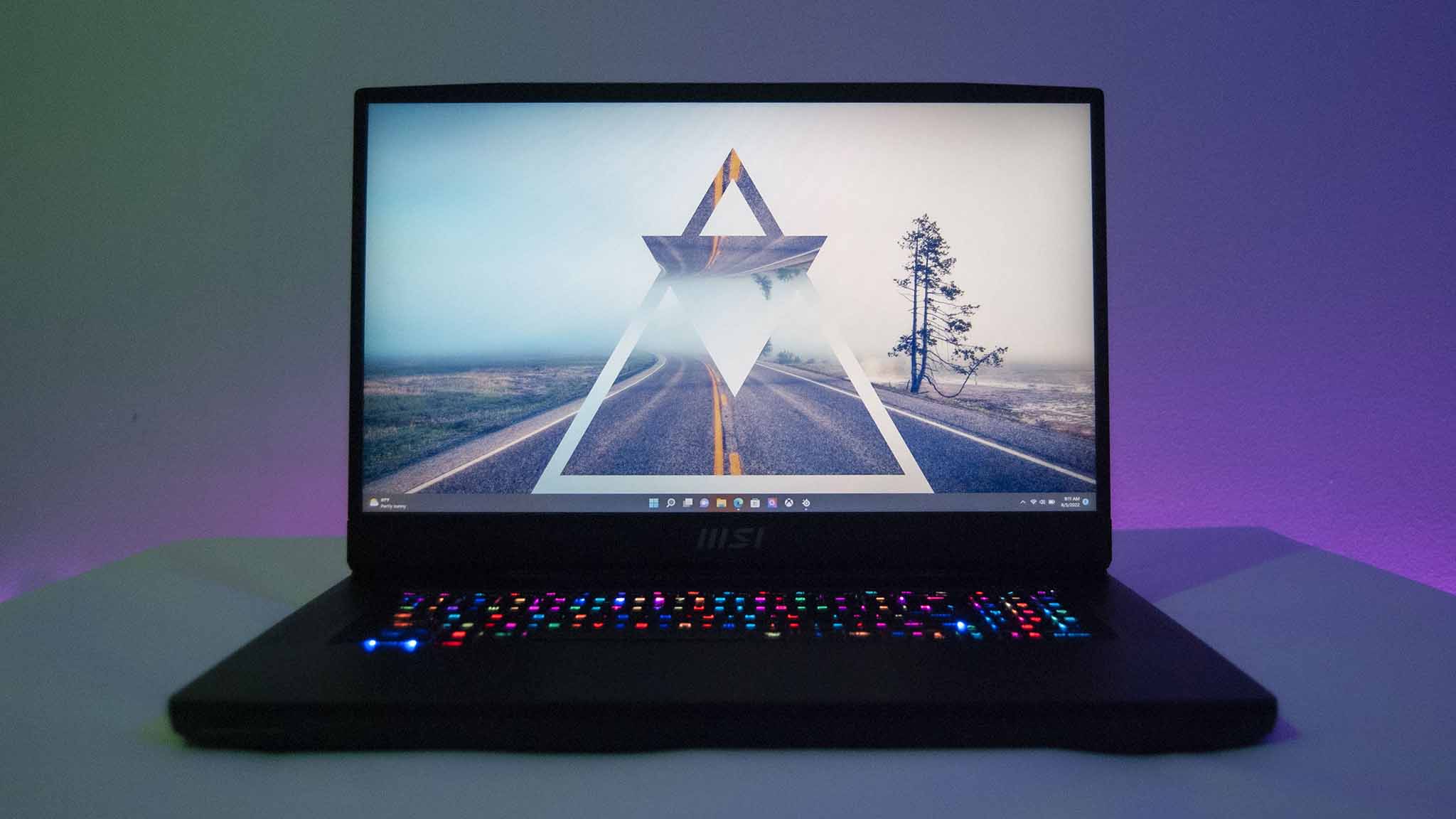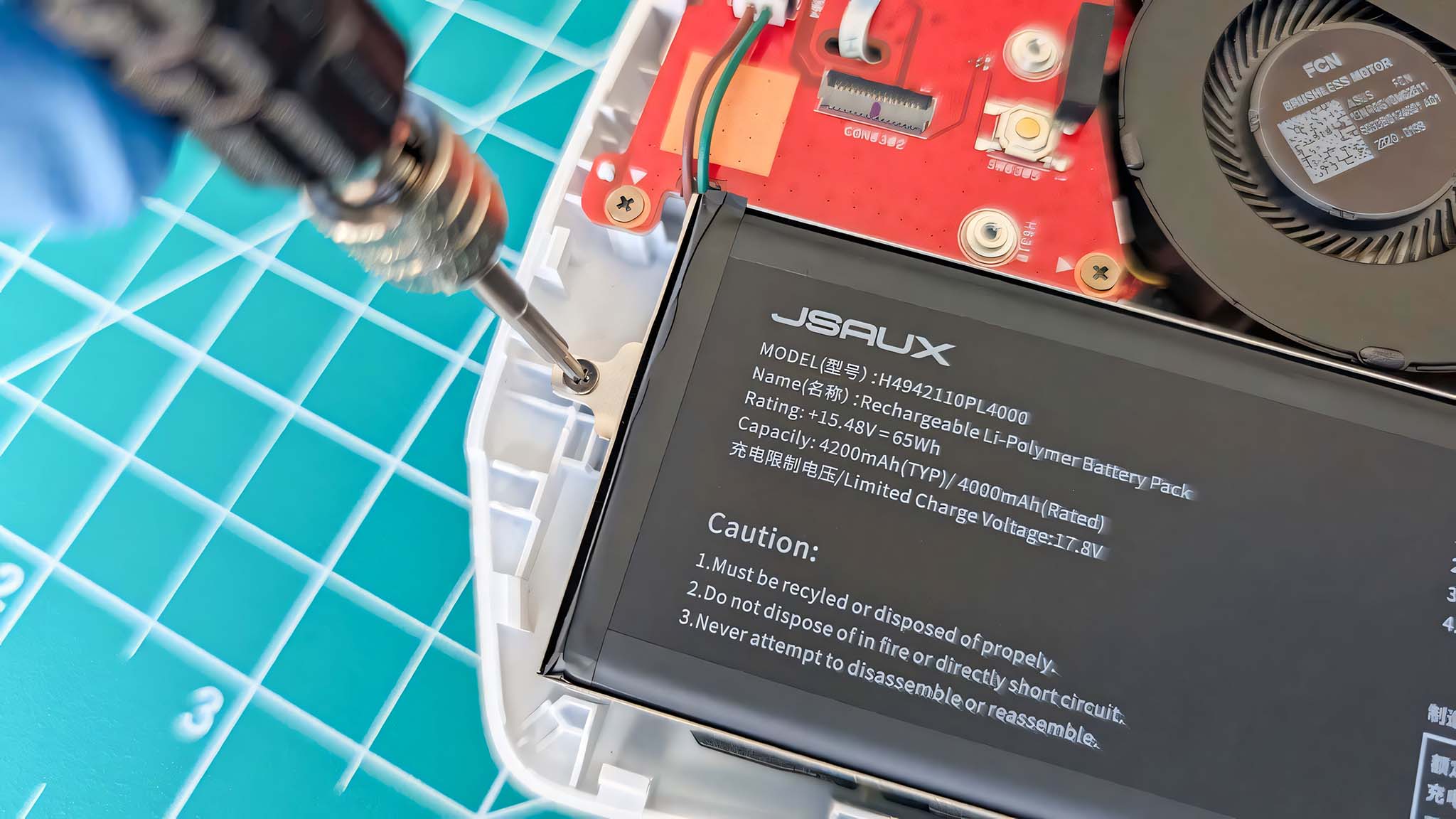Windows Central Verdict
Intel's Core i9-12900HX is a mobile processor with the performance to rival (and best) some of the best desktop CPUs on the market today. It should be heavily considered if you need the utmost performance from your gaming laptop or mobile workstation.
Pros
- +
Mobile performance to rival desktop hardware
- +
Same core count as the Core i9-12900K
- +
55W base TDP, up to 157W
- +
Unlocked for overclocking
Cons
- -
Supporting laptops are expensive
Why you can trust Windows Central
Intel revealed its initial 12th Gen mobile H-Series processors (CPU) in January at CES 2022, with U- and P-Series mobile chips coming about a month later. This was a few months after the launch of the 12th Gen Alder Lake desktop chips, which introduced the "Intel 7" process — previously known as Intel 10nm Enhanced SuperFin (10ESF) — to better compete with AMD's TSMC 7nm process.
If the standard 12th Gen H-Series 45W mobile chips weren't enough, Intel then boosted its lineup with HX-Series 55W processors, designed to deliver "desktop-caliber silicon in a mobile package" for workstations and gaming laptops. These CPUs are unlocked for overclocking out of the box, and they employ the new "big.LITTLE" hybrid architecture that splits cores between Performance and Efficiency.
We got our hands on an MSI Titan GT77 gaming laptop with Intel Core i9-12900HX to test out; we're starting with the CPU and will turn our attention to the laptop itself for a separate review. Is the Core i9-12900HX truly capable of desktop-class performance? Is it worth it to buy over competing CPUs, including others from Intel? We're here to find out.
Intel Core i9-12900HX: Price and availability
Intel supplied us with a review unit of the MSI Titan GT77 gaming laptop complete with 12th Gen Intel Core i9-12900HX CPU, NVIDIA RTX 3080 Ti Laptop GPU, 64GB (4x16GB) of dual-channel DDR5-4800MHz, and four 1TB M.2 PCIe 4.0 NVMe SSDs.
The Core i9-12900HX processor has a 55W TDP, capable of being boosted up to 157W under maximum Turbo. It does not offer vPro or ECC RAM support; you'll have to go with the sibling Core i9-12950HX (which otherwise has identical specs) for that privilege.
You cannot buy the i9-12900HX as a standalone product; it's a mobile chip that's installed inside laptops by the manufacturer. Aside from the MSI Titan GT77, we've so far seen the i9-12900HX in laptops from ASUS, Dell, Gigabyte, HP, and Lenovo, with more expected to be on the way. Intel lists the recommended customer price at $606.
These are not affordable laptops by any means. The Titan GT77 starts at around $3,000 and climbs from there. Keep in mind this CPU and the laptop it's built into are meant to replace your desktop.
Alder Lake and Core HX explained
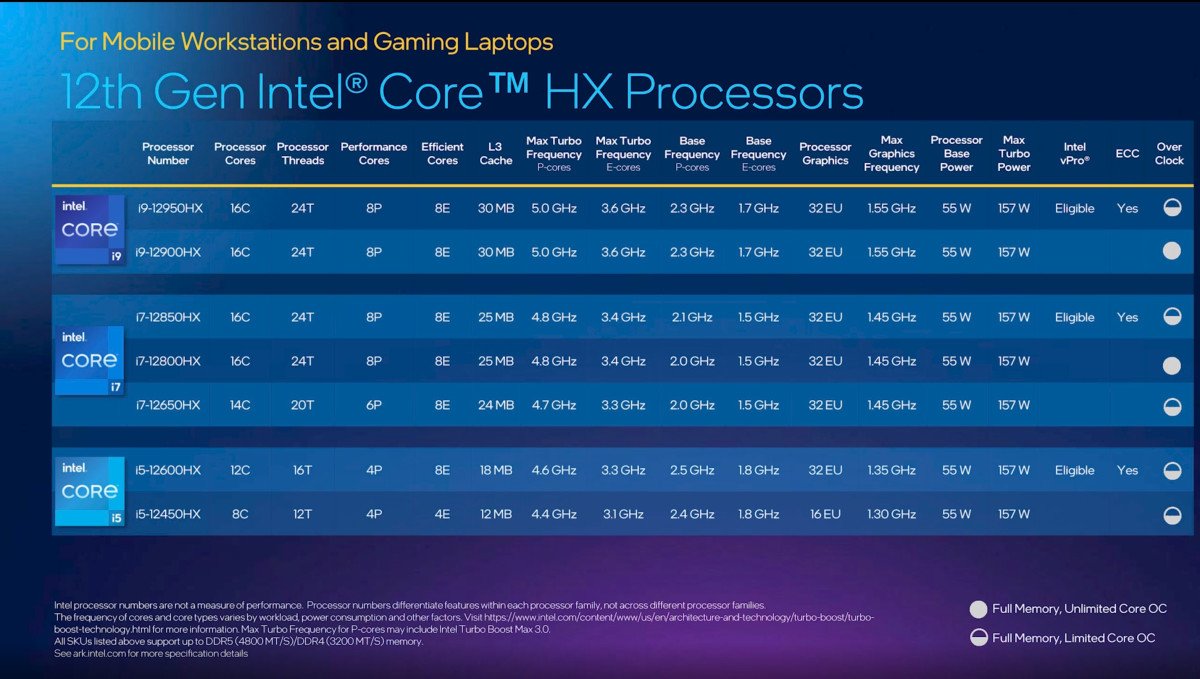
Intel's 12th Gen processors, including desktop and mobile chips, live under the codename "Alder Lake." These CPUs employ a "big.LITTLE" hybrid design, similar to what ARM and Apple processors use. It combines multi-threaded Performance cores and single-threaded Efficiency core. The "E" cores are reserved to handle low-priority work, while the "P" cores are there to power through everything else. Core switching is all handled by Intel's new Thread Director that's designed to work optimally with Windows 11.
Along with the new hybrid architecture, 12th Gen Intel desktop CPUs have also opened up support for DDR5 RAM and PCIe 5.0 storage, making them much better equipped for future upgrades. Our Intel Core i9-12900K review has a deeper explanation of Alder Lake if you need some extra information.
Intel released its 12th Gen mobile chips, including P-, U-, and H-Series hardware, for laptop builders a few months after launching the 12th Gen desktop CPUs. The highest-end H-Series CPUs boast 14 cores, a 45W TDP, and a Max Turbo power up to 115W. Those are impressive numbers, but Intel didn't stop there.
Designed for enthusiasts and intended for mobile workstations and gaming laptops, Intel's HX-Series processors go well beyond the standard H-Series chips. Available with up to 16 cores, a 55W TDP, and a Max Turbo power up to 157W, it's clear that Intel wants to rival desktop performance. They're even unlocked for overclocking.
Take a look at how the Core i9-12900HX's numbers compare to some of Intel's other mobile and desktop chips.
| Category | Intel Core i9-12900HX | Intel Core i9-12900HK | Intel Core i9-12900K |
|---|---|---|---|
| Cores | 16 | 14 | 16 |
| Threads | 24 | 20 | 24 |
| Performance (P) Cores | 8 | 6 | 8 |
| Efficient (E) Cores | 8 | 8 | 8 |
| Max Turbo (P) | 5.0GHz | 5.0GHz | 5.1GHz |
| Max Turbo (E) | 3.6GHz | 3.8GHz | 3.9GHz |
| Base Frequency (P) | 2.3GHz | 2.5GHz | 3.2GHz |
| Base Frequency (E) | 1.7GHz | 1.8GHz | 2.4GHz |
| Base Power | 55W | 45W | 125W |
| Max Turbo Power | 157W | 115W | 241W |
While the Core i9-12900HX can't match the desktop-class Core i9-12900K's massive TDP, it's important to keep in mind that the former CPU is being used in laptops with considerably less space and more limited cooling. HX-Series CPUs aren't available in just any laptop; they require a significant support system to keep running.
As for comparing to the i9-12900HK — Intel's previous mobile heavy hitter — the HX chip adds two extra Performance cores and a higher base and Max Turbo TDP.
Like their desktop counterparts, the HX-Series CPUs also deliver PCIe 5.0 support. This isn't a huge deal right now as the best SSDs have just entered PCIe 4.0 territory, but it will make a difference in the future.
Intel Core i9-12900HX: Benchmarks and performance
Intel's Core i9-12900HX CPU that I'm testing comes installed in an MSI Titan GT77 gaming laptop with 64GB of DDR5-4800MHz RAM and an NVIDIA RTX 3080 Ti Laptop GPU. It's a good example of the support system required to house this sort of CPU, as it's built with four fans, seven heat pipes, and six separate exhaust ports. It's powered by a massive 330W AC adapter.
We've tested some other gaming laptops and desktop PCs using Intel's 12th Gen and AMD's Ryzen 5000 CPUs, which make for a great comparison to the i9-12900HX. System stability and supporting hardware differ, but these CPU-focused test results will still give you a good idea of how the raw power compares.
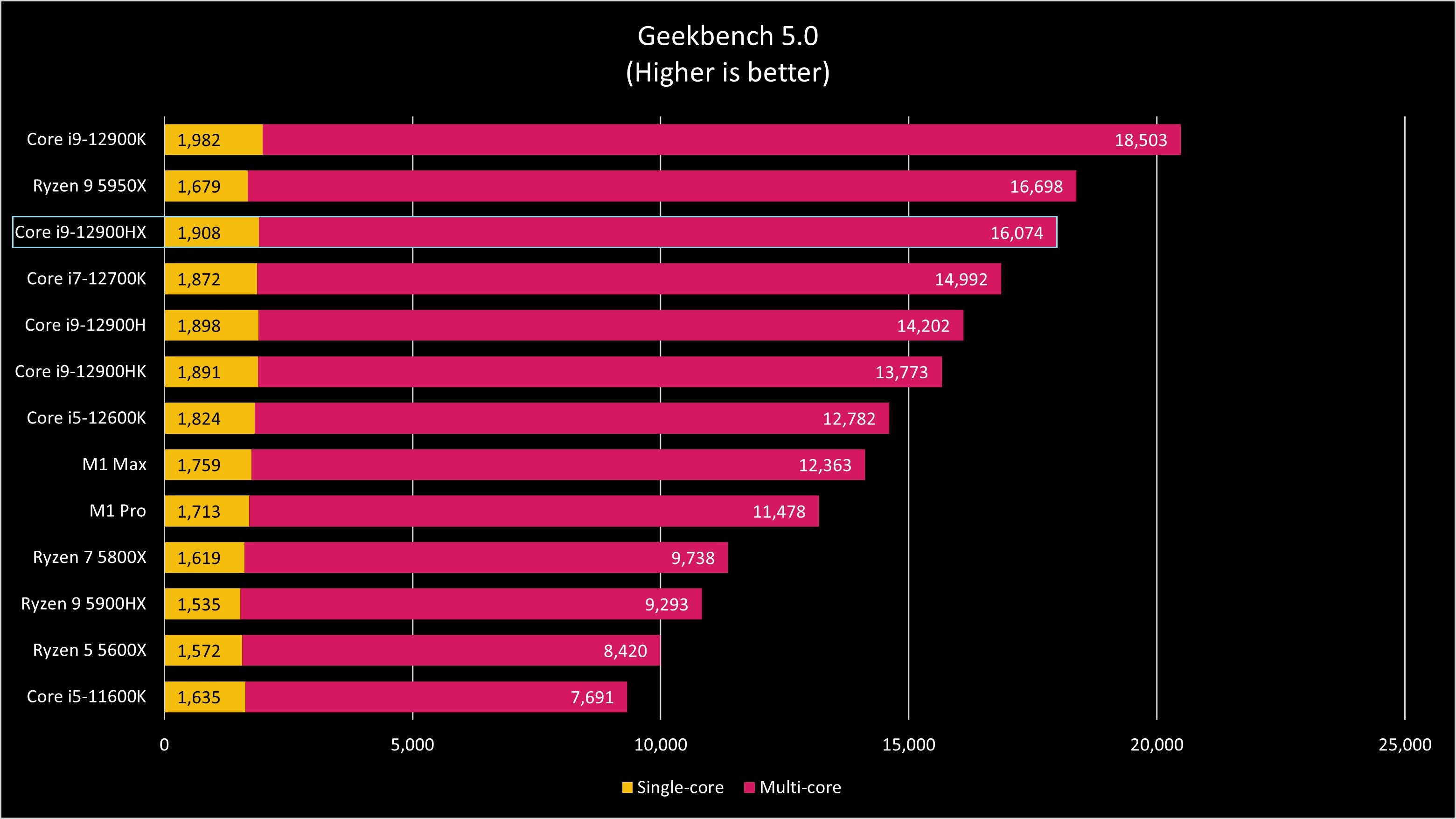
The Core i9-12900HX is beaten only by the desktop-class Ryzen 9 5950X (by a slim margin) and the Core i9-12900K. The extra Performance cores in the i9-12900HX push it well ahead of the i9-12900H and i9-12900HK.
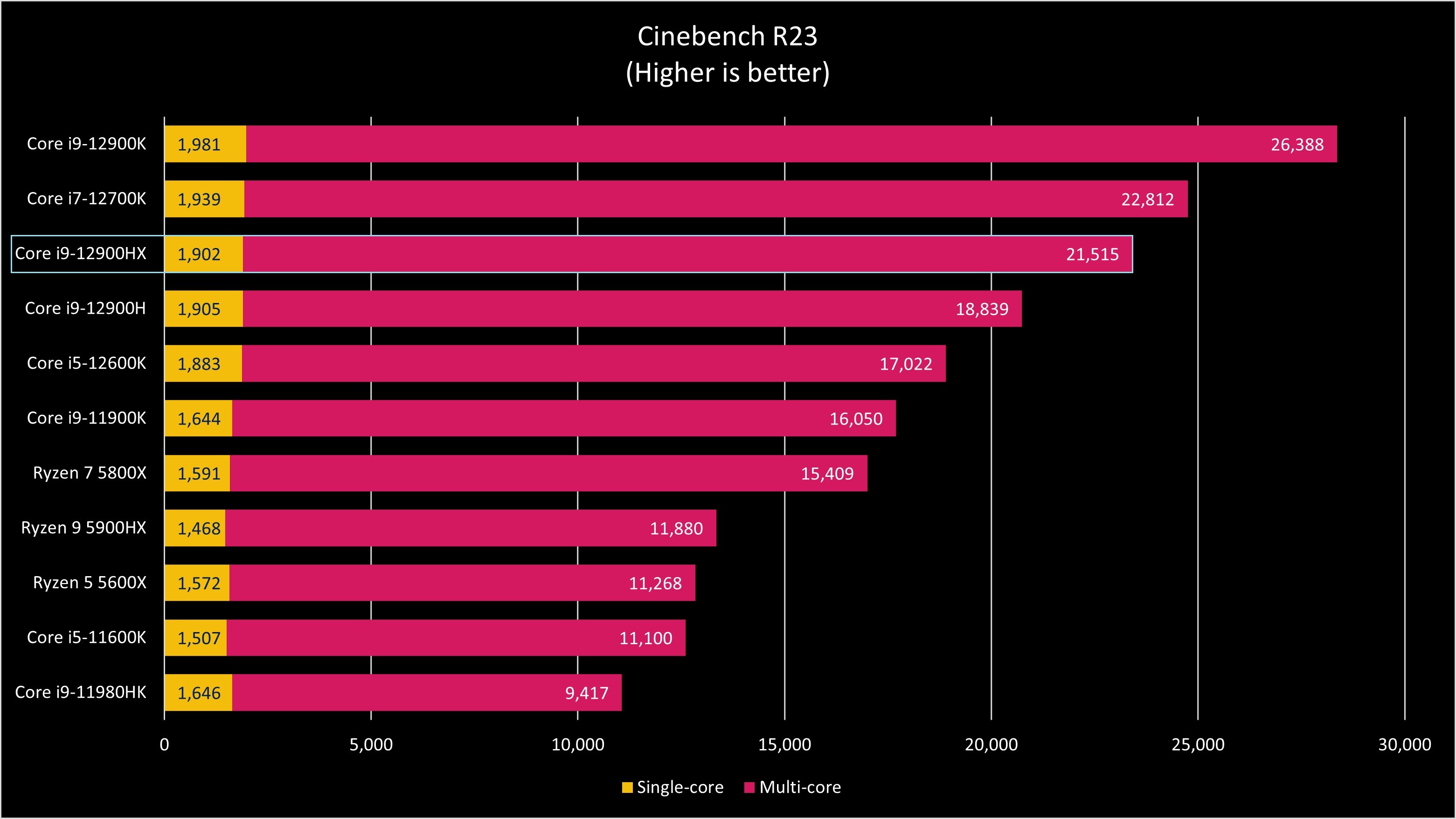
A similar story here, with the Core i9-12900HX only being outclassed by desktop CPUs. The Core i7-12700K comes out just a bit ahead, while the Core i9-12900K flexes its multi-thread muscle. The two extra Performance cores go along way in propelling the i9-12900HX ahead of the i9-12900H.
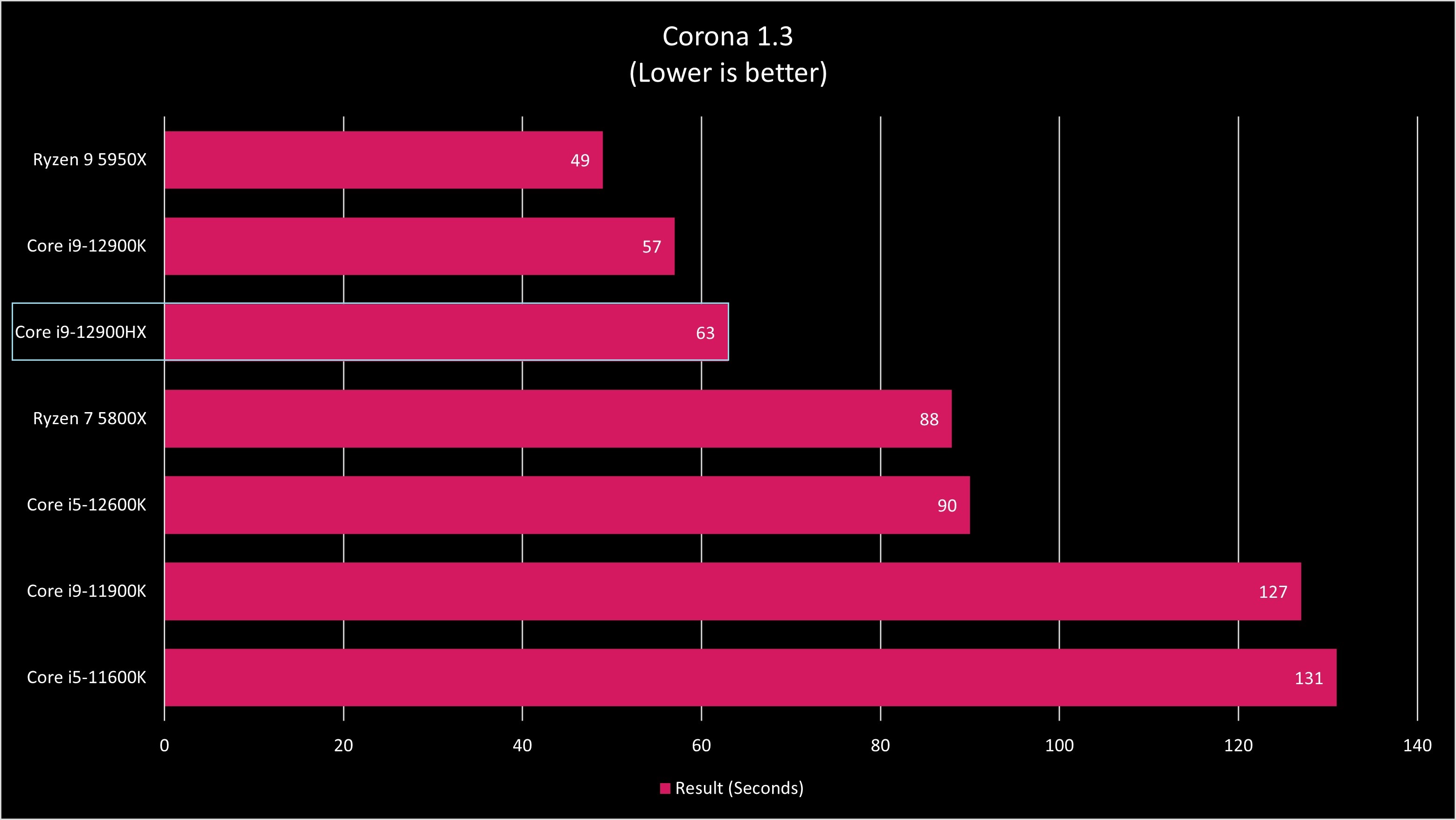
The Core i9-12900HX performed extremely well, only being beaten by the Core i9-12900K and the Ryzen 9 5950X.
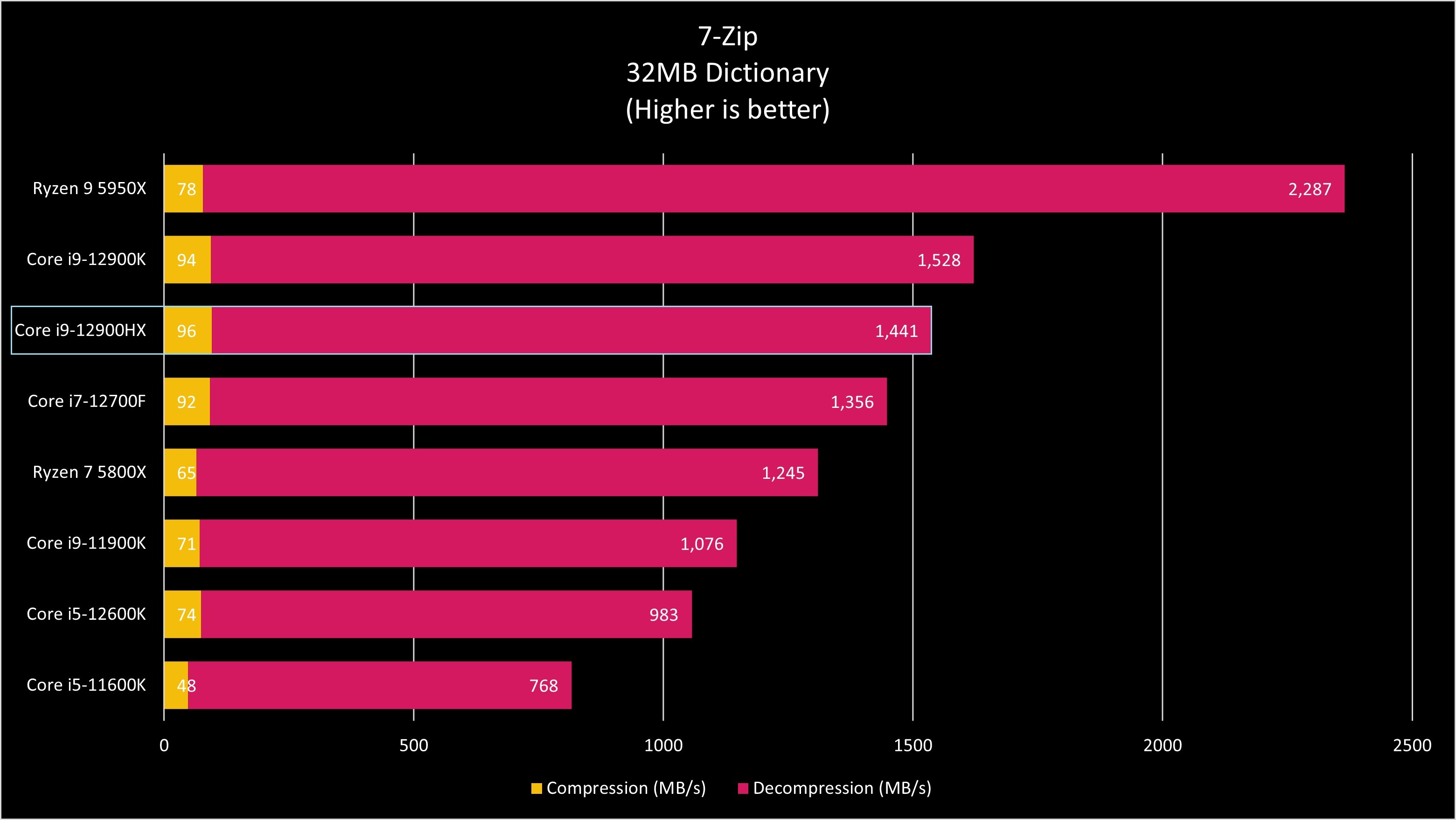
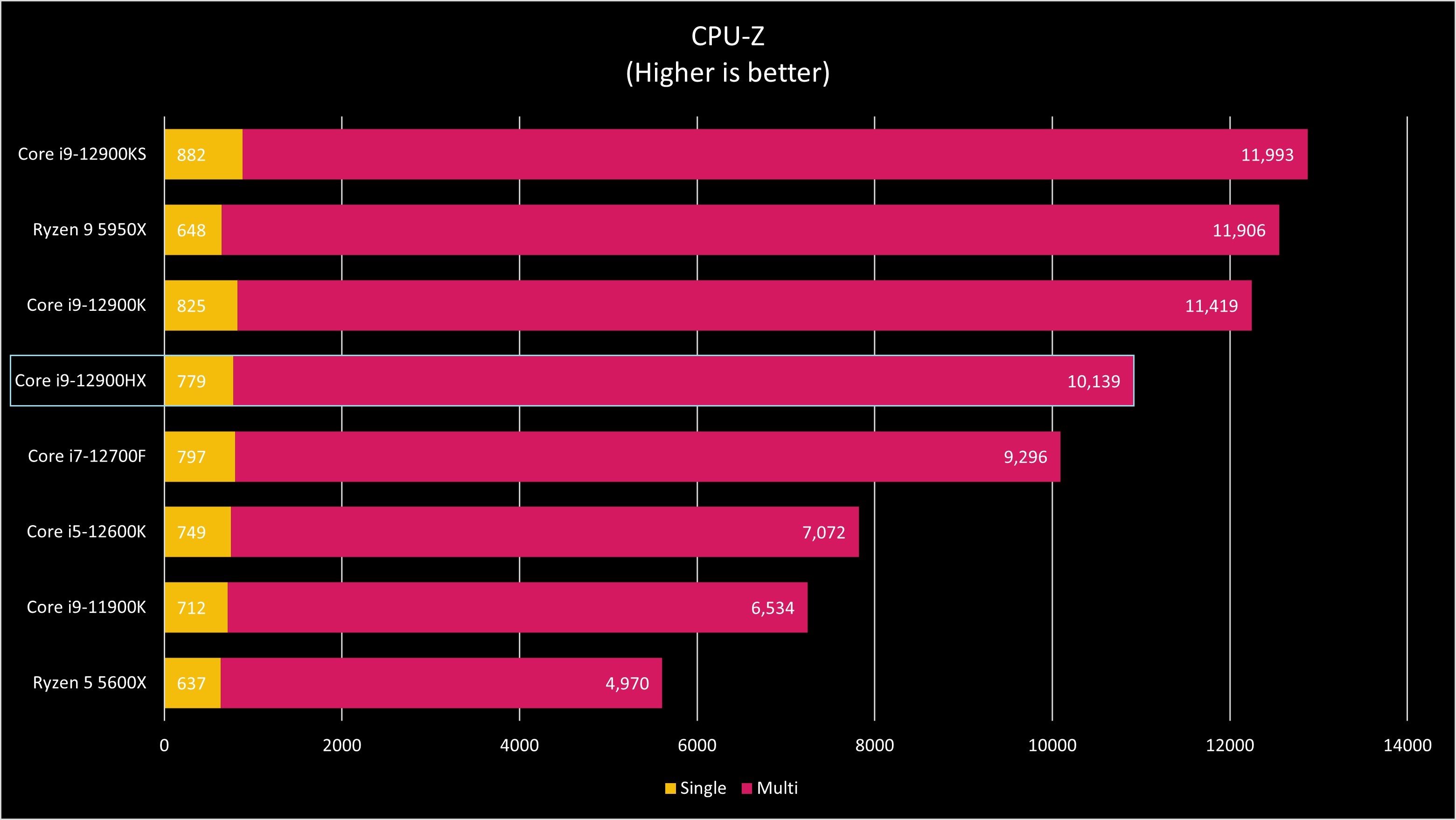
I also ran a number of CPU-focused tests for which we don't have as many competing results. Still, you can see how far ahead the Core i9-12900HX is compared to some of Intel's other heavy hitters.
In BAPCo's CrossMark test, the Core i9-12900HX achieved an overall score of 2,099, as well as a 1,924 Productivity score, 2,357 Creativity score, and a 1,924 Responsiveness score. To compare, the Core i9-12900H in the ASUS ZenBook Pro 14 Duo OLED had an overall score of 1,814 in our testing.
In the browser benchmark WebXPRT 4, the Core i9-12900HX achieved an overall score of 293, compared to the Core i9-11980HK's score of 231.
In 3DMark's CPU Profile test, the Core i9-12900HX hit a max threads score of 10,355. The current highest score for the Core i9-12900HK in 3DMark's records is 10,017, with the vast majority of results sitting around 8,300 or lower. The Core i9-12900H's highest score is 8,952.
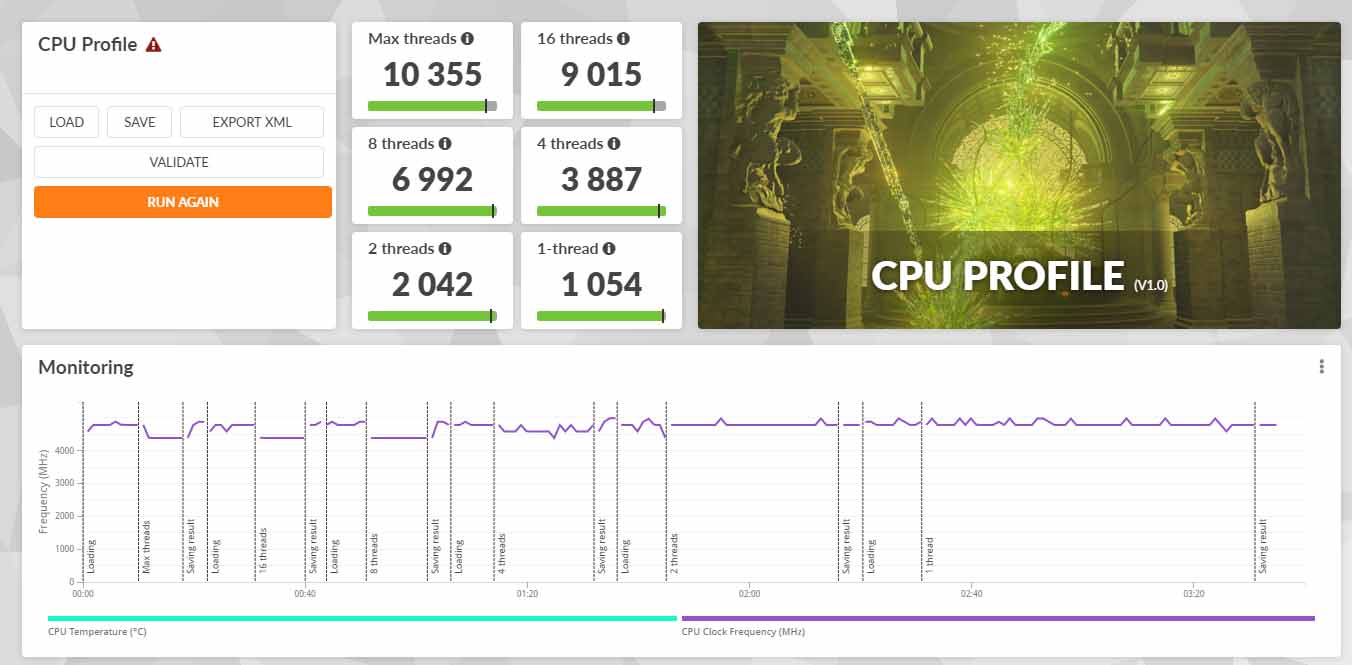
I also ran UL's Procyon benchmark suite that measures performance with Microsoft's Office apps. The Core i9-12900HX hit an overall score of 8,437, as well as a Word score of 9,793, an Excel score of 9,036, a PowerPoint score of 7,131, and an Outlook score of 7,643.
Finally, I ran a SPECworkstation 3.1 benchmark, which simulates workstation performance based on a wide variety of applications and workloads. The results are as follows, and I've compared them to an Intel Xeon W-1390P workstation CPU with 125W TDP coupled with an NVIDIA Quadro RTX 5000 GPU.
| Category | Core i9-12900HX | Xeon W-1390P |
| Media and Entertainment | 4.12 (3.53 CPU) | 3.69 |
| Product Development | 3.95 (4.14 CPU) | 4.86 |
| Life Sciences | 4.02 (4.19 CPU) | 3.67 |
| Financial Services | 3.96 (3.96 CPU) | 2.5 |
| Energy | 4.55 (4.09 CPU) | 5.25 |
| General Operations | 3.14 (2.31 CPU) | 3.29 |
I will cover the actual laptop's capabilities, including gaming performance, thermals, and wattage, in the full MSI Titan GT77 review; right now we're just concerned with the raw performance of the CPU.
Intel Core i9-12900HX: Competition
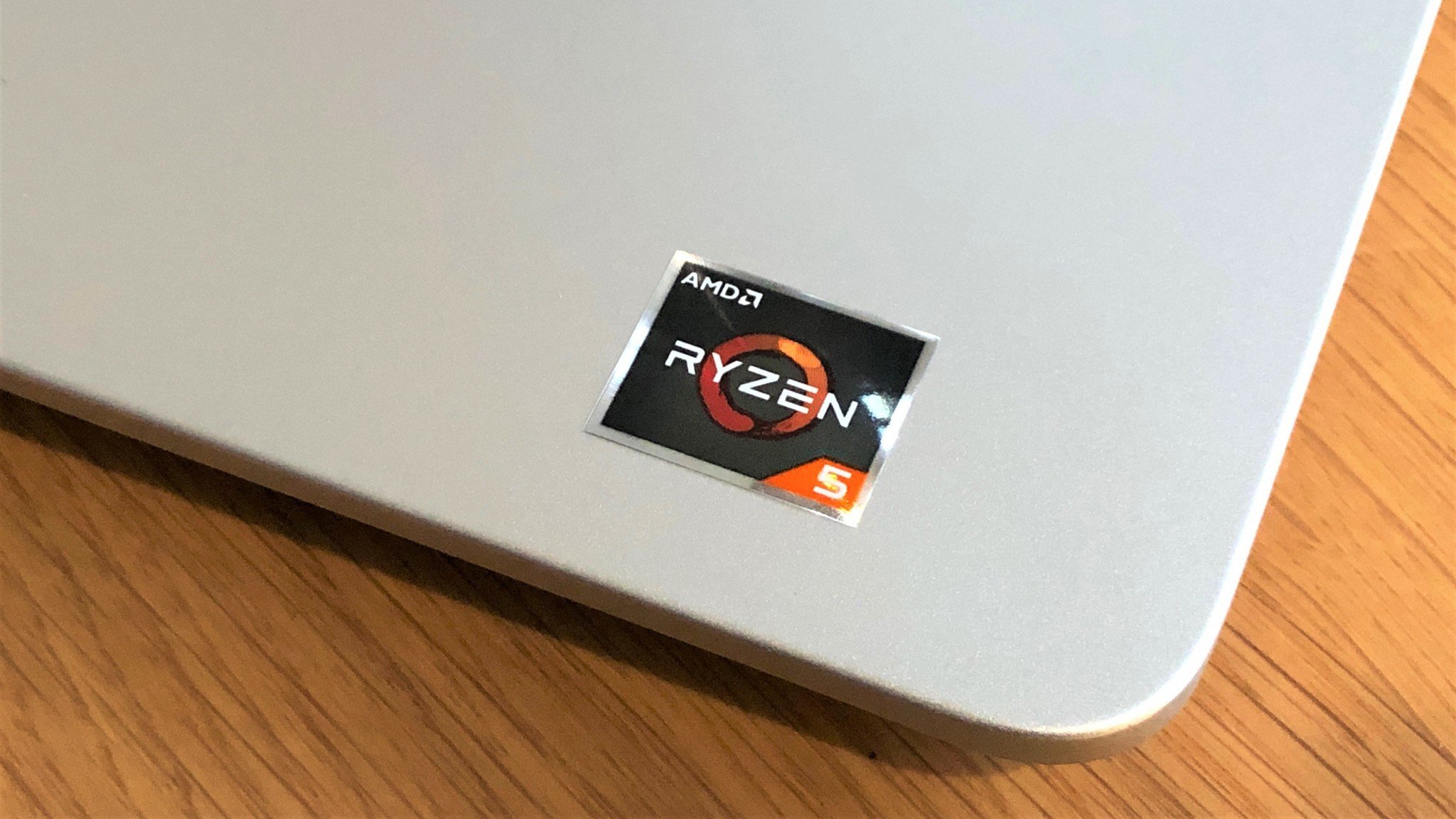
AMD announced its new Ryzen 6000-Series mobile processors with Zen 3+ architecture earlier this year, adding U-, H- and HS, and HX-Series options of its own. These CPUs bring DDR5 RAM and PCIe 4.0 support. AMD also added new 6nm Ryzen Pro 6000 processors for business PCs and workstations a few months later.
Intel's Core i9-12900HX processor narrows the gap between desktop and laptop performance.
While we haven't yet had a chance to test these CPUs in-house, we can look at the specs of the most powerful chips to get an idea of where they stand next to the Core i9-12900HX.
The Ryzen 9 6980HX is the closest competition. It has 8 cores, 16 threads, a base clock of 3.3GHz, a boost clock of 5.0GHz, and a TDP of 45W. It's unlocked for overclocking. There's also the Ryzen 9 Pro 6950H with the same core count, 4.9GHz boost clock, and 45W TDP. It will be interesting to see how these CPUs truly stack up to the i9-12900HX when be begin testing them; the higher core count and TDP should give Intel's hardware an easy edge.
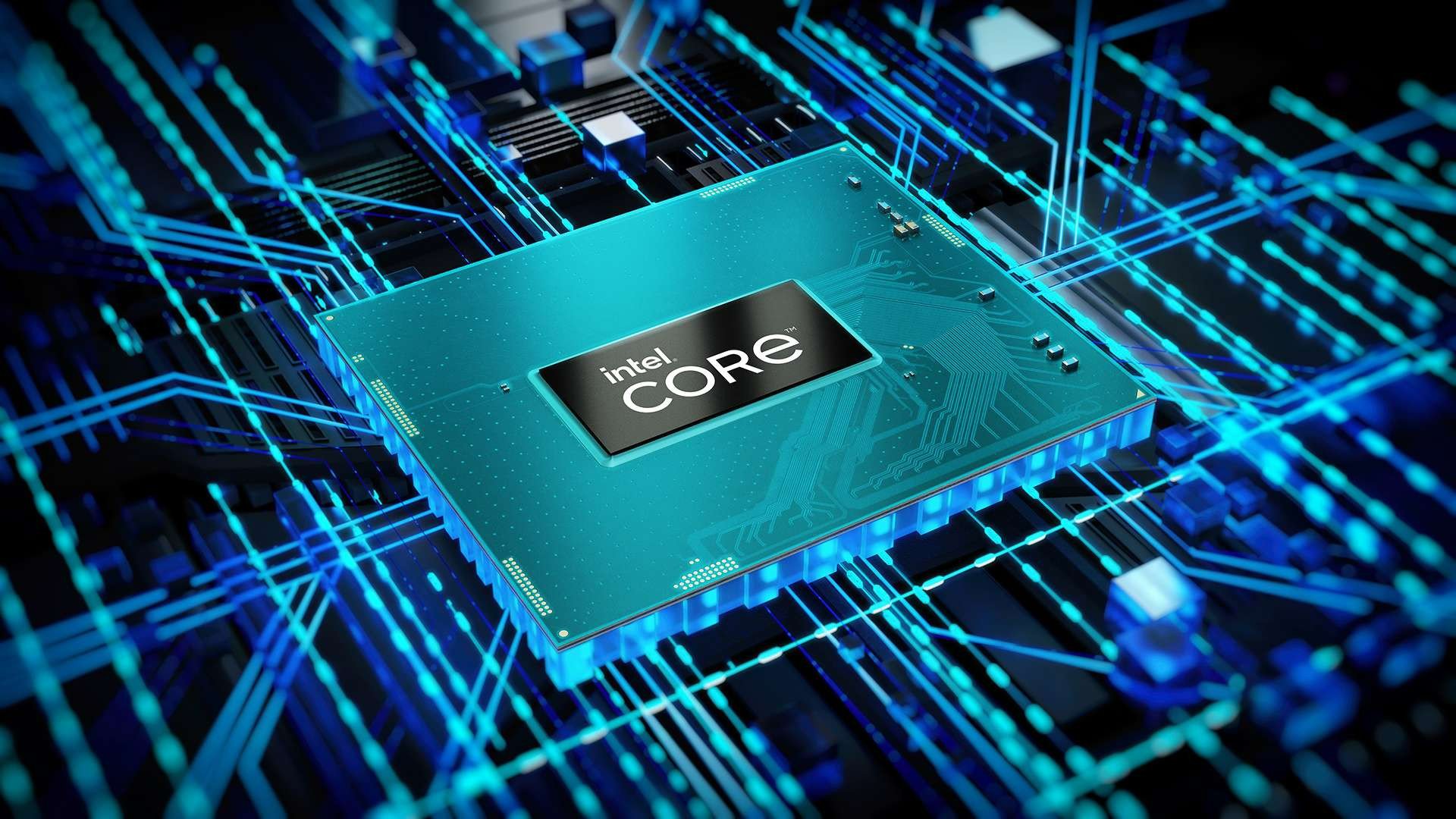
The Core i9-12900H and its unlocked HK sibling can't quite compete with the Core i9-12900HX's power, but they're still impressive processors that will absolutely crush whatever the average person throws their way. If you're not looking to get into high-end design and development work, Intel has plenty of options to choose from.
Intel's set prices for the high-end H-Series CPUs aren't much different than the HX-Series chips, but it's the laptop around the processor that will really change your buying experience. You'll no doubt be able to find laptops with H-Series chips at a much more affordable price.
Have a look at our collection of the best gaming laptops for more PCs with high-end hardware.
Intel Core i9-12900HX: Should you buy?
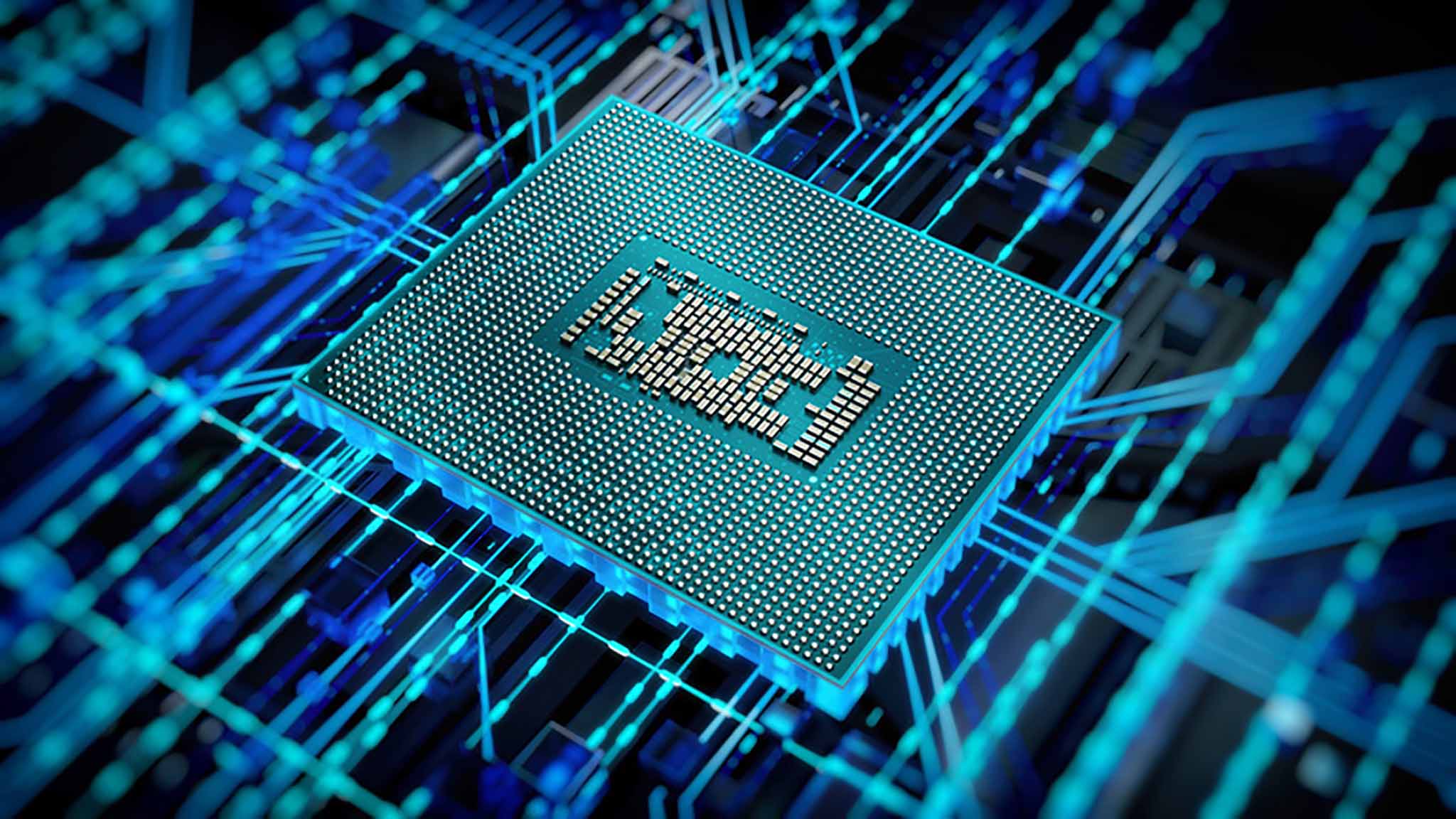
Who it's for ...
- Enthusiasts who want the utmost performance in their laptop
- Designers and developers who need heavy multitasking performance
- Those with deep pockets
Who it isn't for ...
- Average PC users looking for a fast — but not the fastest — processor
- Those looking for an affordable gaming PC
The Core i9-12900HX is a behemoth mobile processor that was outclassed only by high-end desktop chips like the Intel Core i9-12900K and the AMD Ryzen 9 5950X, both some of the best CPUs out there, in most of the tests we performed.
Reviewing the full MSI Titan GT77 laptop in the near future will give us a better idea of battery life, thermals, and gaming performance, but this focus on the CPU shows its potential when powering gaming laptops and mobile workstations.
While premium desktop processors will still win out against their mobile counterparts, Intel has narrowed the gap considerably. If you're looking for a lot of power that can pack up into a backpack (an admittedly large backpack, at least for the MSI laptop), the Core i9-12900HX should be a top choice.
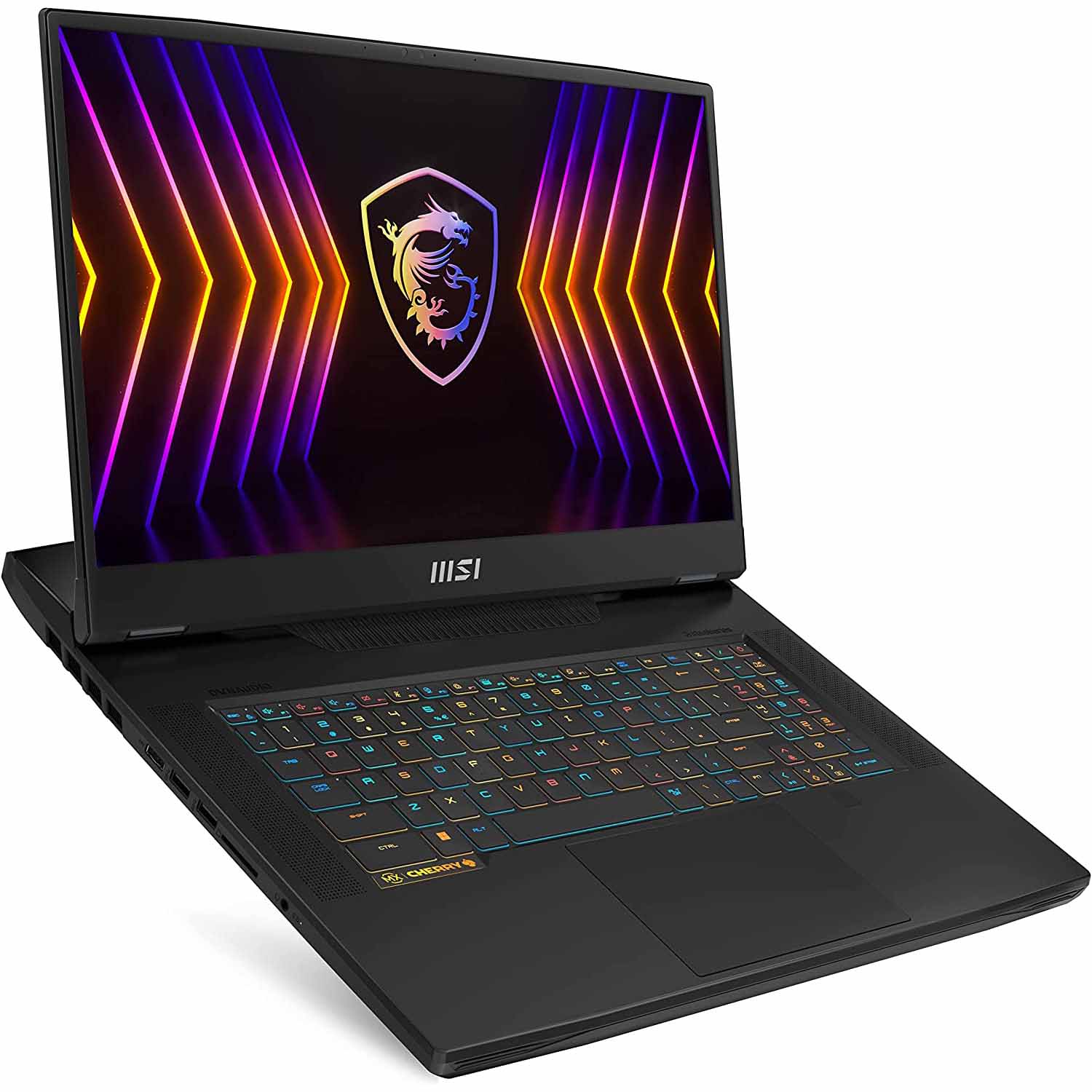
MSI's Titan GT77 hosts the Intel Core i9-12900HX CPU, a monster chip that holds its own against even high-end desktop hardware.

Cale Hunt brings to Windows Central more than eight years of experience writing about laptops, PCs, accessories, games, and beyond. If it runs Windows or in some way complements the hardware, there’s a good chance he knows about it, has written about it, or is already busy testing it.
